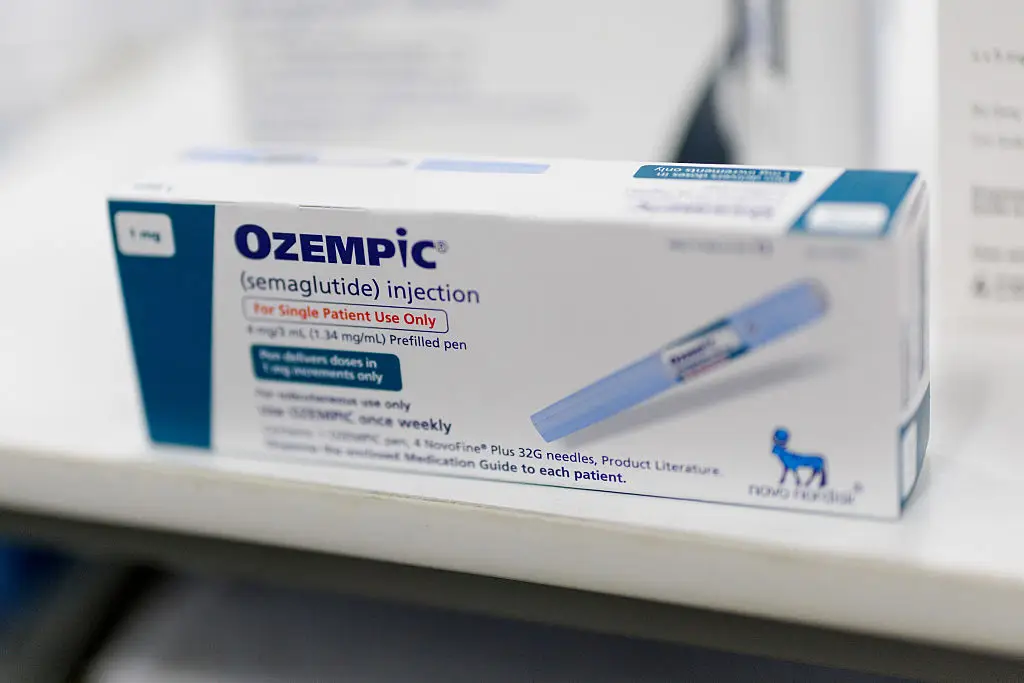
A gynecologist has explained three ways in which GLP-1 medications such as Ozempic can have an impact on the vagina after people described the changes they'd noticed.
Ozempic is not currently approved by the FDA for weight loss, and is instead intended to treat type 2 diabetes, but along with Wegovy and Mounjaro it has become one of a number of GLP-1 medications known to help users shift a few pounds.
As their popularity increases, users have taken to social media platforms to share their experiences with weight loss drugs and described impacts to their skin, sex lives and even their teeth.
Among the body parts that users have drawn attention to is the vulva, with one Ozempic user explaining: “I’ve lost 20 kg or 44 lbs. I’ve been really lucky and I have no noticeable sagging skin in my tummy or my arms/legs...
Advert
"Turns out I’ve lost all my fat pads in my vulva! [A doctor] told me my vulva is saggy and I will continue to experience pain when biking/sitting unless I have surgery or put on fillers.”

In the wake of such concerns, Dr. Melanie Bone, a consultant OBGYN and US medical director at the gynecological health company Daye, told Newsweek: "GLP-1 receptor agonists such as Ozempic have become increasingly popular for weight loss and diabetes management. However, their effects on vaginal health are an important consideration that is often overlooked."
Bone broke down three ways GLP-1 medications can 'potentially impact vaginal health', as follows:
Altered hormone levels
Weight loss might be beneficial for those who are overweight, but Bone noted that losing weight rapidly can alter hormone levels, which can in turn 'affect vaginal lubrication and tissue health'.
As a result, Bone said: "Some women may experience increased vaginal dryness as a result."
Dehydration
As medications can work to curb your appetite, they can also have gastrointestinal side effects such as nausea, vomiting, and diarrhoea.
Losing liquid may result in dehydration, which could further contribute to vaginal dryness and discomfort.
"To maintain vaginal health while using GLP-1 agonists, I recommend staying well-hydrated, using a vaginal probiotic and considering the use of vaginal moisturizers if experiencing dryness," Bone said.

Changes to your vaginal microbiome
According to Bone, 'the changes in diet and gut microbiome associated with these medications may also indirectly impact the vaginal microbiome due to the gut-vagina axis'.
Bone explained that changes to the vaginal microbiome may be indicated through a change in vaginal discharge or odour, though such changes may also be a sign of potential vaginal infections.
To help ensure you're keeping healthy down there, Bone recommended regular screenings of vaginal health, saying: "By checking on their vaginal health regularly, patients can monitor for any changes in their vaginal microbiome that may be associated with GLP-1 agonist use.
"This proactive approach allows for early detection and management of any issues that may arise."
"It's crucial for women and assigned female at birth (AFAB) individuals to discuss any vaginal health concerns with their healthcare provider while using GLP-1 agonists," Bone added. "Open communication about these potential effects can lead to better management and overall health outcomes."

Novo Nordisk, which manufactures Ozempic and Wegovy, told UNILAD: "Patient safety is of the utmost importance to Novo Nordisk. We continuously collect safety data on our marketed GLP-1 RA medicines and work closely with the authorities to ensure patient safety. We recommend patients take these medications only for their approved indications and under the supervision of a healthcare professional.
"Treatment decisions should be made together with a healthcare provider who can evaluate the appropriateness of using a GLP-1 based on assessment of a patient’s individual medical profile.
"We recommend that any UK patient experiencing side effects while taking GLP receptor agonists including Wegovy or Ozempic report them to their healthcare provider and via the MHRA Yellow Card scheme: https://yellowcard.mhra.gov.uk/."
UNILAD has also reached out to Eli Lilly and Company, which manufactures Mounjaro, for comment.